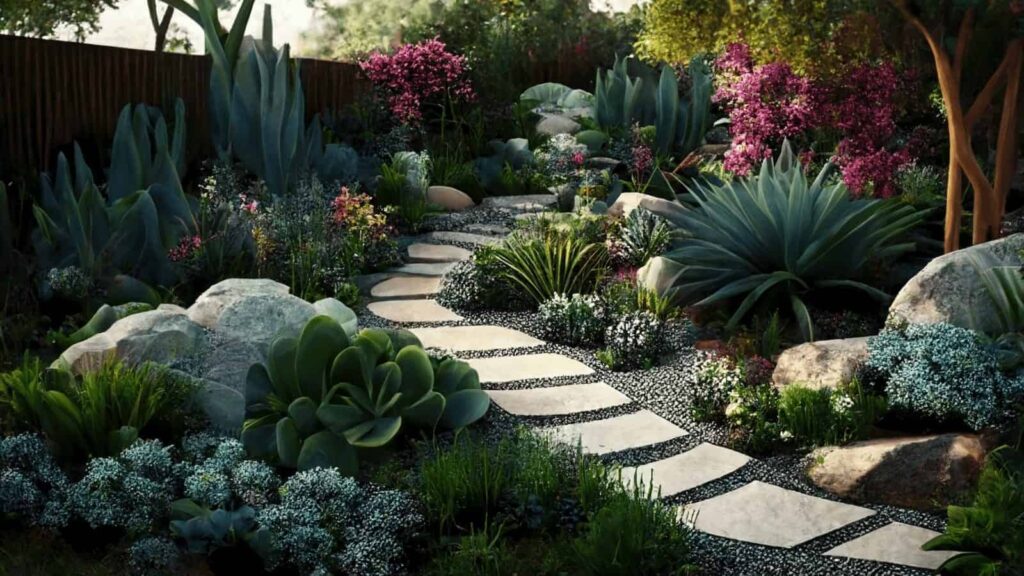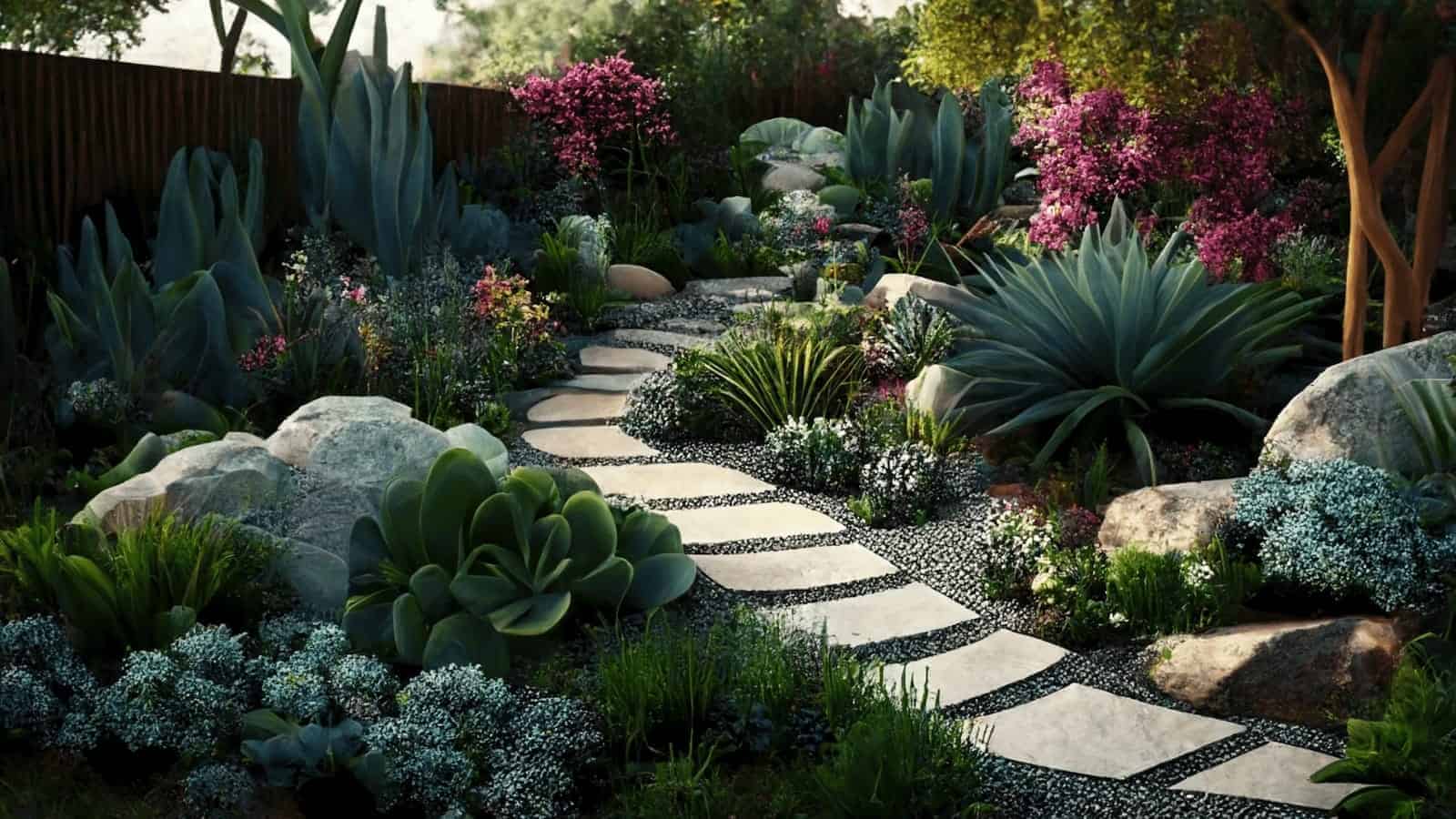
Environmentally Friendly Landscaping in Portland: A Sustainable Approach
Portland, Oregon, known for its commitment to sustainability and green initiatives, is a hub for environmentally friendly practices in various sectors, including landscaping. Environmentally friendly landscaping in Portland isn’t just a trend; it’s a necessity driven by the city’s eco-conscious residents and policies. This article explores the key aspects of sustainable landscaping in Portland, highlighting its benefits, common practices, and resources for homeowners and businesses looking to adopt greener approaches.
Why Choose Environmentally Friendly Landscaping?
The benefits of environmentally friendly landscaping extend far beyond aesthetics. By adopting sustainable practices, Portland residents can contribute to a healthier environment, conserve resources, and even save money in the long run.
Environmental Benefits
- Reduced Water Consumption: Environmentally friendly landscaping emphasizes drought-tolerant plants and efficient irrigation systems, significantly reducing water usage.
- Minimized Chemical Use: Sustainable landscaping avoids synthetic pesticides and fertilizers, protecting local waterways and ecosystems from harmful pollutants.
- Enhanced Biodiversity: Native plants, a cornerstone of eco-friendly landscaping, attract pollinators and support local wildlife, contributing to a richer biodiversity.
- Carbon Sequestration: Plants absorb carbon dioxide, helping to mitigate climate change. Environmentally friendly landscaping maximizes this benefit through careful plant selection and soil management.
- Soil Health Improvement: Practices like composting and mulching improve soil structure and fertility, reducing the need for artificial amendments.
Economic Benefits
- Lower Utility Bills: Reduced water consumption translates to lower water bills. Strategic placement of trees and shrubs can also reduce energy consumption by providing shade and insulation.
- Reduced Maintenance Costs: Native plants require less maintenance than non-native species, saving time and money on watering, fertilizing, and pest control.
- Increased Property Value: Environmentally friendly landscaping enhances curb appeal and can increase property value, appealing to environmentally conscious buyers.
Key Practices in Environmentally Friendly Landscaping in Portland
Several key practices define environmentally friendly landscaping. These approaches are designed to minimize environmental impact while creating beautiful and functional outdoor spaces.
Native Plant Selection
Using native plants is fundamental to sustainable landscaping. Native plants are adapted to the local climate and soil conditions, requiring less water, fertilizer, and pest control. They also provide habitat and food for local wildlife.
Some popular native plants for environmentally friendly landscaping in Portland include:
- Oregon Grape (Mahonia aquifolium): A hardy evergreen shrub with attractive foliage and berries.
- Sword Fern (Polystichum munitum): A classic Pacific Northwest fern that thrives in shady areas.
- Red Flowering Currant (Ribes sanguineum): A beautiful shrub with vibrant pink flowers that attract hummingbirds.
- Douglas Fir (Pseudotsuga menziesii): An iconic evergreen tree that provides shade and habitat.
- Salal (Gaultheria shallon): A versatile groundcover that tolerates shade and drought.
Water Conservation Techniques
Conserving water is crucial in environmentally friendly landscaping. Several techniques can help reduce water consumption:
- Drip Irrigation: Delivers water directly to plant roots, minimizing water loss through evaporation and runoff.
- Rainwater Harvesting: Collecting rainwater in barrels or cisterns for later use in irrigation.
- Xeriscaping: Designing landscapes that require minimal irrigation, using drought-tolerant plants and efficient watering practices.
- Mulching: Applying a layer of organic mulch around plants to retain moisture and suppress weeds.
Soil Management
Healthy soil is the foundation of a thriving landscape. Sustainable soil management practices include:
- Composting: Recycling organic waste into nutrient-rich compost, which can be used to amend soil.
- Cover Cropping: Planting cover crops to improve soil structure, fertility, and water retention.
- Avoiding Soil Compaction: Minimizing foot traffic and using lightweight equipment to prevent soil compaction.
- Using Organic Amendments: Amending soil with organic materials like compost, manure, and leaf mold to improve its fertility and structure.
Integrated Pest Management (IPM)
IPM is a holistic approach to pest control that minimizes the use of synthetic pesticides. IPM strategies include:
- Monitoring: Regularly inspecting plants for signs of pests or diseases.
- Cultural Controls: Using practices like crop rotation, proper watering, and fertilization to prevent pest problems.
- Biological Controls: Introducing beneficial insects or other organisms to control pests.
- Mechanical Controls: Using physical barriers, traps, or hand-picking to remove pests.
- Least-Toxic Pesticides: Using organic or natural pesticides as a last resort.
Sustainable Hardscaping
Hardscaping elements, such as patios, walkways, and retaining walls, can also be designed and constructed sustainably. Consider these practices:
- Using Recycled Materials: Incorporating recycled materials like reclaimed wood, recycled concrete, and recycled plastic into hardscaping projects.
- Permeable Paving: Using permeable pavers or gravel to allow rainwater to infiltrate the soil, reducing runoff and replenishing groundwater.
- Local Sourcing: Sourcing materials locally to reduce transportation costs and emissions.
- Minimizing Impervious Surfaces: Reducing the amount of impervious surfaces to allow rainwater to infiltrate the soil.
Resources for Environmentally Friendly Landscaping in Portland
Portland offers numerous resources for homeowners and businesses interested in environmentally friendly landscaping. These resources can provide guidance, education, and support for adopting sustainable practices.
- City of Portland Bureau of Planning and Sustainability: Offers resources and programs related to sustainable landscaping, including information on native plants, water conservation, and IPM.
- East Multnomah Soil & Water Conservation District: Provides technical assistance, workshops, and grants for landowners interested in sustainable land management practices.
- Oregon State University Extension Service: Offers educational resources on gardening, landscaping, and pest management.
- Local Nurseries and Garden Centers: Many nurseries and garden centers in Portland specialize in native plants and sustainable gardening supplies.
- Landscape Professionals: Several landscape professionals in Portland specialize in environmentally friendly landscaping design and installation.
Case Studies: Environmentally Friendly Landscaping Success Stories
Several successful examples showcase the benefits of environmentally friendly landscaping in Portland.
Residential Landscaping
One Portland homeowner transformed their traditional lawn into a native plant garden, reducing water consumption by 70% and attracting a variety of pollinators. By replacing the lawn with drought-tolerant native plants and installing a drip irrigation system, the homeowner created a beautiful and sustainable landscape that requires minimal maintenance. [See also: Native Plant Gardening for Beginners]
Commercial Landscaping
A local business implemented a green roof on its building, reducing stormwater runoff and providing insulation. The green roof, planted with sedums and other drought-tolerant plants, helps to regulate the building’s temperature, reducing energy consumption for heating and cooling. [See also: Benefits of Green Roofs]
Community Gardens
Portland’s community gardens often employ environmentally friendly landscaping practices, such as composting, rainwater harvesting, and organic gardening. These gardens provide residents with access to fresh, locally grown produce and promote sustainable living. [See also: Starting a Community Garden]
Challenges and Considerations
While the benefits of environmentally friendly landscaping are clear, there are also challenges and considerations to keep in mind.
- Initial Costs: Implementing sustainable landscaping practices may require an initial investment in native plants, irrigation systems, and soil amendments.
- Maintenance: While native plants generally require less maintenance, some ongoing maintenance is still necessary to keep the landscape healthy and attractive.
- Knowledge and Expertise: Designing and implementing environmentally friendly landscaping requires knowledge of native plants, soil science, and sustainable practices.
- Regulations and Permits: Some landscaping projects may require permits or be subject to local regulations.
Conclusion: Embracing Environmentally Friendly Landscaping in Portland
Environmentally friendly landscaping in Portland is a growing movement driven by the city’s commitment to sustainability and the desire of its residents to create healthier, more beautiful outdoor spaces. By adopting sustainable practices like native plant selection, water conservation, and IPM, Portlanders can contribute to a greener future while enjoying the many benefits of a thriving landscape. Whether you’re a homeowner, business owner, or community gardener, there are numerous resources and opportunities to embrace environmentally friendly landscaping in Portland. Environmentally friendly landscaping is not just a trend; it’s a vital step towards creating a more sustainable and resilient city. Making the switch to environmentally friendly landscaping not only benefits the environment but also enhances the beauty and value of properties throughout Portland. By embracing these practices, Portland continues to lead the way in sustainable urban living. Environmentally friendly landscaping in Portland is a commitment to a healthier, more vibrant community.

